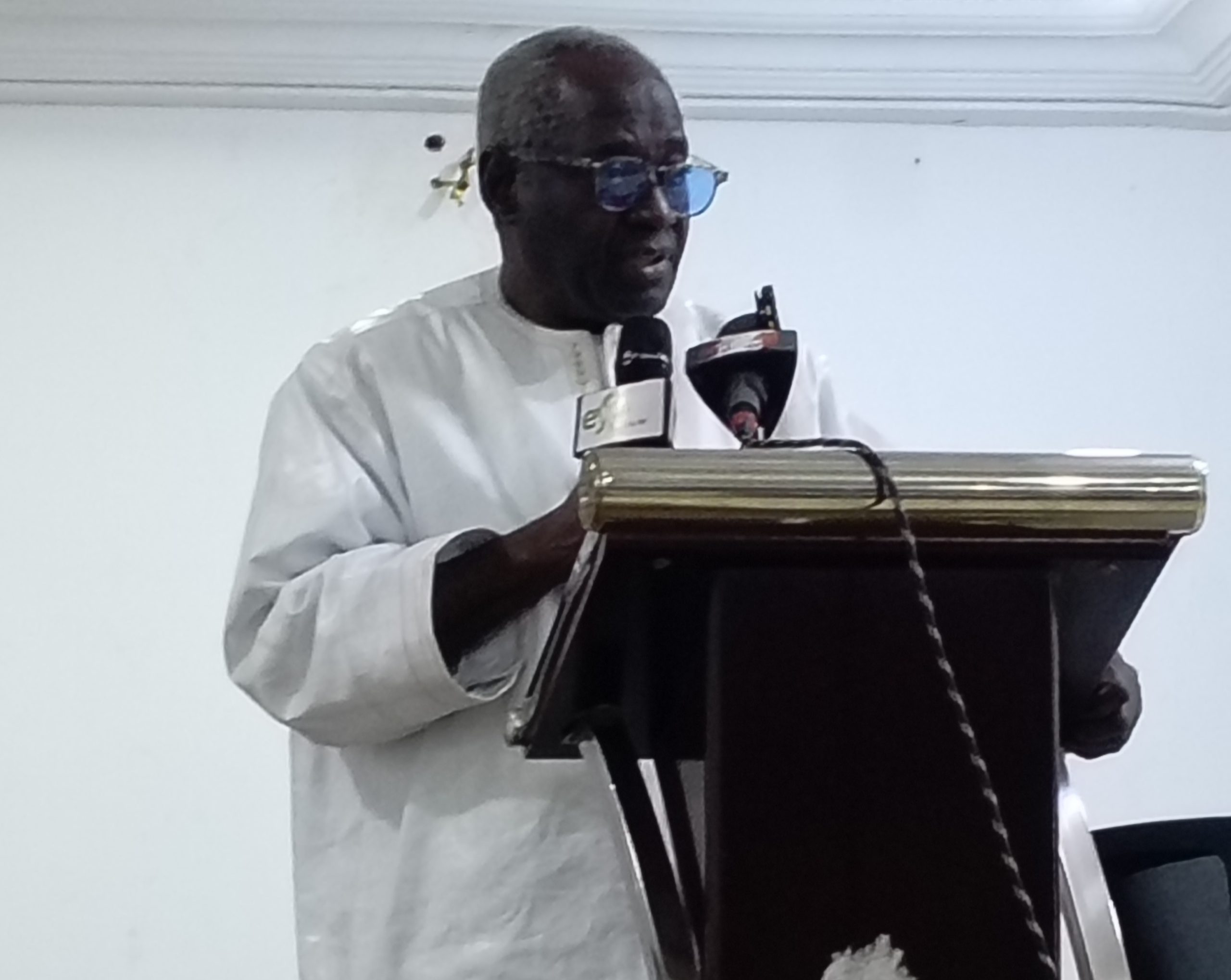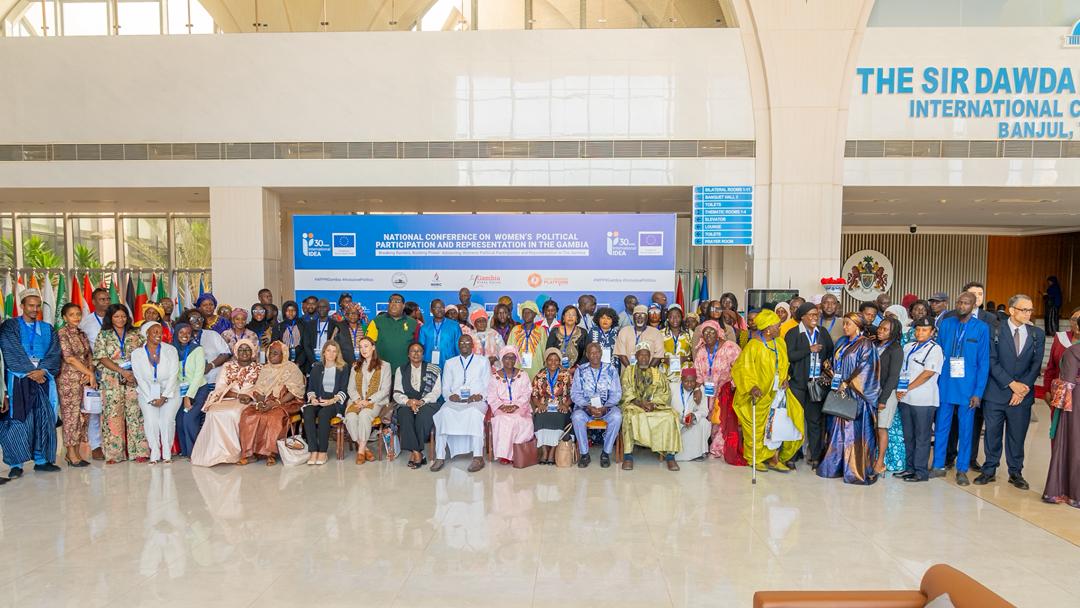I suppose I am not a loner in my bewilderment at how a piece of legislation (the Public Order Act) whose objective is to regulate among other things the issuance of permits viz-a-viz the exercise of the right to free assembly time and time again contribute to rather than inhibit public disorder. In light of the aforementioned it can be said that the law or aspects of it are unworkable or that there is a fundamental misconception of it on the part of those entrusted with its enforcement. Law exist for the benefit of society rather than society existing for the benefit of the law and hence why where a piece of legislative authority becomes a cost rather than a benefit to society, appropriate steps must be taken to close the gap between such inadequacy in law, its essence and the needs of the society whose welfare it is meant to safeguard.
The reasons for the unfortunate outcomes of 10th and 11th April 2000 (Students demonstrations), 14th April 2016 (Solo Sandeng and co demonstration) and 26th January 2020 (‘3 Years Jot Na’) must not be reduced to public disobedience, delinquency or a desire by a section of society to challenge lawful authority. This would be a careless and misinformed assumption. It is the classic lazy conclusion which unfortunately for decades stood in the way of progressive reform in this area of public policy. We must seek solutions to the problem by objectively examining its source (Section 5 of the Public Order Act) rather than form subjective conclusions on its symptoms (manifestations of public frustration) which are often ill advised albeit completely avoidable last resort measures.
Section 25(1)(d) of the Constitution guarantees the right to “…freedom to assemble and demonstrate peaceably…” furthermore subsection (1)(f) guarantees the right to “…freedom to petition the Executive for redress of grievances…”. Furthermore, at Section 25(4) it states that the rights under Section 25 “…shall be exercised subject to the laws of The Gambia in so far as that law imposes reasonable restriction on the exercise of the rights and freedoms thereby conferred, which are necessary in a democratic society and are required in the interests of the sovereignty and integrity of The Gambia, national security, public order, decency or morality, or in relation to contempt of court”. This restriction is embodied in the Public Order Act, a provision which has consistently aroused and continues to arouse controversy over the years the most prominent among these being the Supreme Court ruling of 23rd November 2017.
Supreme Court case number 3 of 2016 which ruled that the restriction to the right to exercise the fundamental right to free assembly [section 5 Public Order Act] is Constitutional evidently fell short of addressing the fundamental issue; it only offered a simple answer to what is a complex question. Reading through the judgement, it became apparent that the Learned Justices failed to appreciate the fundamental void which exists in the law it has been asked to examine. Whilst Section 5 of the Public Order Act explicitly mandates the requirement of a permit by the person seeking to exercise the right and explicitly identifies the authority to whom an application for such permit shall be made, it did not set out how such authority / discretion should be exercised by the Police etc on receipt of an application. This leaves a very problematic void in the decision making process, something which the Justices ought to have given careful consideration and offered a judicial guidance on but, unfortunately failed to. This was a Lord Denning moment which begged for a landmark persuasive (if not binding) obiter / commentary cum judicial guidance to remedy the void in the Law.
The discretion given to the Inspector General of Police (IGP) and regional Governors under Section 5 of the Public Order Act is unguided, blunt and arbitrary no wonder the ludicrous inconsistencies in a number of decisions being made by the IGP on the issue of issuance of permits for demonstrations etc. It is certainly not the intention of good law to avail unguided discretionary authority or power to anyone and, for as long as this Section 5 Public Order Act discretion remain unguided, the application for and the issuance of permits shall continue to be characterised by unwarranted and avoidable controversy, conflict and political interference as has been and still is the case.
The Lawmakers, by availing discretionary authority without guidance on how such shall be exercised set the Act for failure and failing it indeed is – it is agitating disorder more than it is preventing it. That said, this fundamental oversight ought to have been captured and nipped in the bud by the Supreme Court Justices in 2017 but, their tunnel-visioned approach meant that they bungled it and, woefully missed the trick. Moving forward, it is in my view a matter of necessity and dire need for the Office of the Attorney General to issue sound guidance viz-a-viz the decision making process with respect to the assessment and determination of permit applications. Such authoritative guided intervention is required to close the aforementioned void and gap in the law, ensure consistency, fairness and to prevent further misapplication of the discretion by those whose duty it is to examine and determine permit applications.
The Attorney General has a duty and, I genuinely implore him to act accordingly for the good, utility and interest of all. Consulting with relevant interested parties with a view to coming up with such suitable and helpful guidance may be a good start. Otherwise, Section 5 shall continue to be a Damocles hanging around the neck of the fundamental right to free assembly etc with all the rancour and acrimony such triggers to the detriment of all.
About the Author
The author is regular columnist contributor to this medium.
Twitter handle: @That_Pragmatist
Publisher’s Note
Views expressed herein are those of the author and do not necessarily represent the views of the publisher. Want to be a contributing author? Please email opmail220@gmail.com





